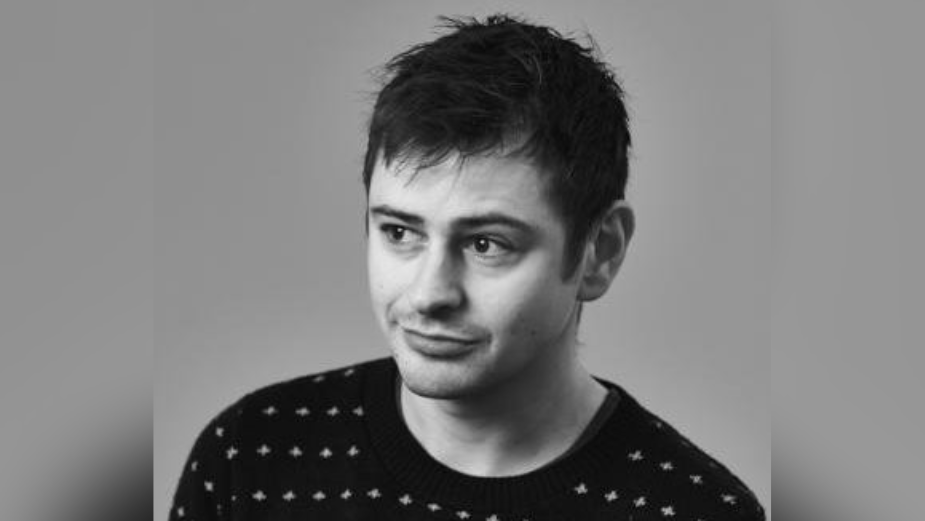
Planning for the Best: Don’t Be Afraid to Question the Rules with Jonathan Fraser

A strategist at OMD, Rocket, Goodstuff, Naked, Leo Burnett, Ogilvy and Holler, Jonathan Fraser re-introduced Alan Partridge to the world in Foster's ‘Mid-Morning Matters’ content series and created the UK's first UGC sponsorship campaign for Virgin Media and Big Brother.
Jonathan also helped reinvent the Champion clothing brand, gave McDonald's a credible role for their 2012 Olympics campaigning and challenged gender stereotypes for P&G’s Always brand with #likeagirl. Fraser oversees all strategic output for Trouble Maker.
LBB> What do you think is the difference between a strategist and a planner? Is there one?
Jonathan> I’ve yet to see an agency with a planning and strategy dept, so I guess there can’t be one.
LBB> And which description do you think suits the way you work best?
Jonathan> Strategist, we create strategies for getting from A-B in the most fun, exciting and effective way possible.
LBB> We’re used to hearing about the best creative advertising campaigns, but what’s your favourite historic campaign from a strategic perspective? One that you feel demonstrates great strategy.
Jonathan> I love campaigns that make me go, “oh yeah, I’ve never looked at it like that before” (you’ll see this theme crop up again).
Iceland’s 2016 campaign, 'The Power of Frozen', is an excellent example of this. As a nation, we’d spent years perceiving Iceland as offering lower-quality food, because it was frozen. However, Iceland flipped our perceptions of frozen food on their head. They showed us that because it’s frozen, we can get a pizza made in Naples, prawns from the North Atlantic and gelato from Verona; they could bring you authentic tastes with provenance due to their commitment to frozen. Suddenly ‘boom’ - of course! I’d never looked at it like that before. Sadly, I think they’ve stepped away from this point of difference and are now trying to mimic and act more like their competitors.
Honorary mention: Fever Tree; if a 1/3 of your drink is the mixer, mix with the best. Again, it elicits the response, “oh yeah, I’ve never looked at it like that before.”
LBB> When turning a business brief into something that can inform an inspiring creative campaign, do you find the most useful resource to draw on?
Jonathan> Probably my stand-up comedy background. In stand-up, we translate complex thoughts and ideas into something simple, insightful and engaging. I’ve been training my strategists in stand-up comedy for the past 15 years, and it transforms their ability to find nuggets of truth and inspire everyone around them.
LBB> What part of your job/the strategic process do you enjoy the most?
Jonathan> It has to be seeing the work out in the wild, where you can identify the strategy as clear as day in the creative. We work in the industry to deliver great output, not to create smart responses to creative briefs and cool Keynote presentations.
LBB> What strategic maxims, frameworks or principles do you find yourself going back to over and over again? Why are they so useful?
Jonathan> I have always loved Walt Disney’s creative process, where you play 3 roles:
The Dreamer: come up with bold, exciting thinking.
The Realist: challenge yourself to demonstrate how it could be achieved.
The Critic: pull it apart and find everything wrong with it.
The last part is so important; it’s so valuable to know all the pitfalls of your strategy. The more wrong ways you figure out, the easier it is to find the best way.
Without this rigour, we wouldn’t have Aladdin 2, The Return of a Jafar.
LBB> What sort of creatives do you like to work with? As a strategist, what do you want them to do with the information you give them?
Jonathan> I like creatives who are secretly brilliant strategists and can tell me how to be better at my job. In my opinion, the strategist and creative duo is much more potent than the traditional art and copy duo.
LBB> There’s a negative stereotype about the strategy being used to validate creative ideas rather than as a resource to inform them and ensure they’re effective. How do you make sure the agency gets this the right way around?
Jonathan> These stereotypes are born from an outdated power imbalance, where traditional agencies and, dare I say it, traditional creatives, feel that everyone must bend around their word. I’d like to think that this isn’t really an issue anymore, as we all know about the power of great thinking coming from anywhere. That said, if you are experiencing this issue, please come and work for Trouble Maker, where you’ll be more valued and feel more valuable.
LBB> What have you found to be the most important consideration in recruiting and nurturing strategic talent?
Jonathan> Recruit as many different types of strategists as possible, and make sure we’re all learning from each other.
LBB> In recent years, it seems like effectiveness awards have grown in prestige, and agencies have paid more attention to them. How do you think this has impacted how strategists work and how they are perceived?
Jonathan> Hopefully, it hasn’t changed anyone’s work at all. Coming up with the most effective campaigns is the very heart of what we should be doing, with or without the dangle of an award.
LBB> Do you have any frustrations with planning/strategy as a discipline?
Jonathan> I find it frustrating when our job is over-intellectualised for the sake of it. Everything we do should improve the output, and if it doesn’t, then we shouldn’t do it.
LBB> What advice would you give anyone considering a career as a strategist/planner?
Jonathan> Don’t be afraid to question the rules; there is always a better way of doing something, so ‘do it first, inspire change and make trouble’.















